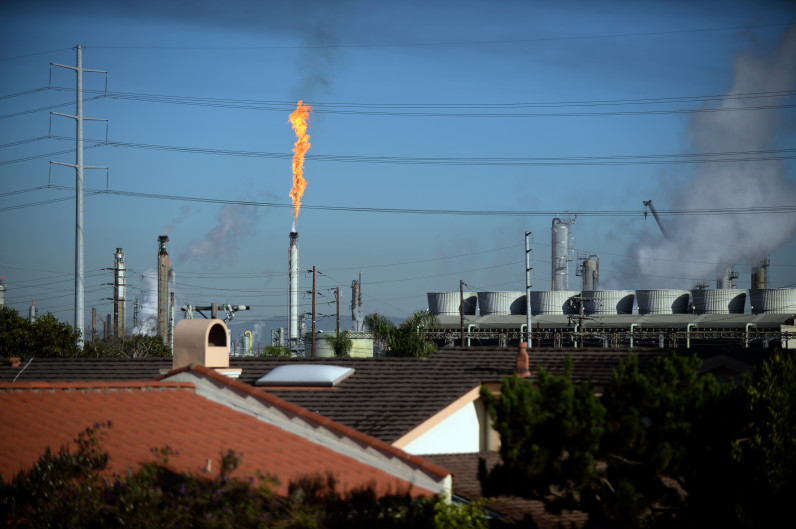
By David Rosenfeld | drosenfeld@scng.com | The Daily BreezePUBLISHED: January 7, 2019 at 5:23 pm | UPDATED: January 7, 2019 at 5:35 pm
The El Segundo Fire Department will get a lot of new equipment later this year, thanks to Chevron — and the federal government.
A new fire engine, a utility truck, radios and a new set of firefighting gear, among other items, are coming the department’s way, because of a federal settlement over allegations the Chevron Corporation violated the Clean Air Act. The settlement, finalized last year, required Chevron to make a $250,000 contribution to El Segundo, and the company added another $900,000, which the South Bay city accepted in December.
The Manhattan Beach Fire Department has also accepted a utility truck and various other emergency response equipment, including new breathing apparatus, valued at $1.18 million from Chevron.
The settlement also requires the oil company to make safety improvements at all of its domestic refineries.
“This case demonstrates the importance of performing equipment inspections and maintenance in accordance with environmental regulations,” Susan Bodine, the assistant administrator for the Environmental Protection Agency’s Office of Enforcement and Compliance Assurance, said in a statement in October, when the settlement was announced. “Under this settlement Chevron, U.S.A Inc. will improve their safety systems and monitoring equipment, protecting their employees and the surrounding communities.”
An August 2012 fire at Chevron’s refinery in Richmond, California, spurred the EPA’s initial inquiry.
In 2013, there was an explosion at a Chevron refinery in Pascagoula, Mississippi, which led to the death of an employee. That same year, the El Segundo refinery had a rupture that led to a power outage and flaring, and spurred a visit from federal investigators.
In October 2017, that same El Segundo refinery had a fire, which was blamed on a failed pump and caused city leaders to evaluate El Segundo’s emergency procedures.
In the final settlement — between Chevron, the EPA, the Justice Department and the Mississippi Department of Environmental Quality — the oil company agreed to spend roughly $150 million to replace vulnerable pipes, upgrade alarms and take various other steps to improve safety at all its domestic refineries. The company also agreed to spend $10 million in communities surrounding refineries in California, Mississippi, Utah and Hawaii, and pay $2.95 million in civil penalties.
The goal of the repairs is to prevent accidental releases of hazardous chemicals.
For El Segundo, the settlement will provide a boost.
“The timing with Chevron’s offer was perfect,” said Fire Chief Chris Donovan, who explained the city was due to start looking for a new fire engine in the coming year. “We are in essence saving funds that would have otherwise come out of the general fund and we’re able to get our goals met sooner.”
The new engine should arrive later this year or the beginning of 2020.
The department will also use the Chevron money to purchase 45 sets of “turn-out gear,” the yellow suits firefighters wear, affording every member with two sets, something Donovan said was already a priority.
Since the 2017 fire, El Segundo has instituted reforms in how it tells the public about emergencies. It now utilizes social media and issues Nixle alerts — a system of emergency text messages — more frequently.
A large burn-off event at the refinery on Sept. 17 put some of the new notification policies to the test. Other improvements are still being worked out.
“We feel we have a good working relationship with Chevron,” said City Manager Greg Carpenter. “They work closely with our emergency response teams. We train and practice together. We do our best to be prepared.”
El Segundo has also worked to conform with Assembly Bill 1646, sponsored by South Bay Assemblyman Al Muratsuchi, which took effect Jan. 1, and requires a local alert and notification system in coordination with other agencies.
“There is,” Donovan said, “considerable effort underway currently to improve the method and speed at which we communicate with the community.”
Source: Daily Breeze